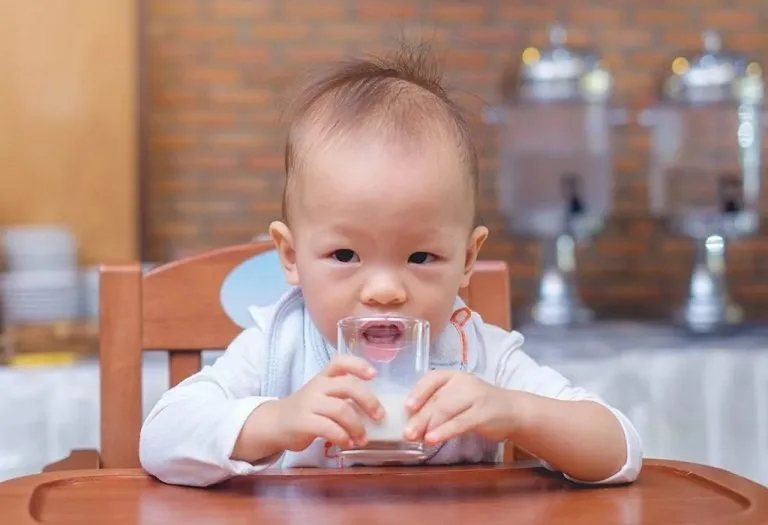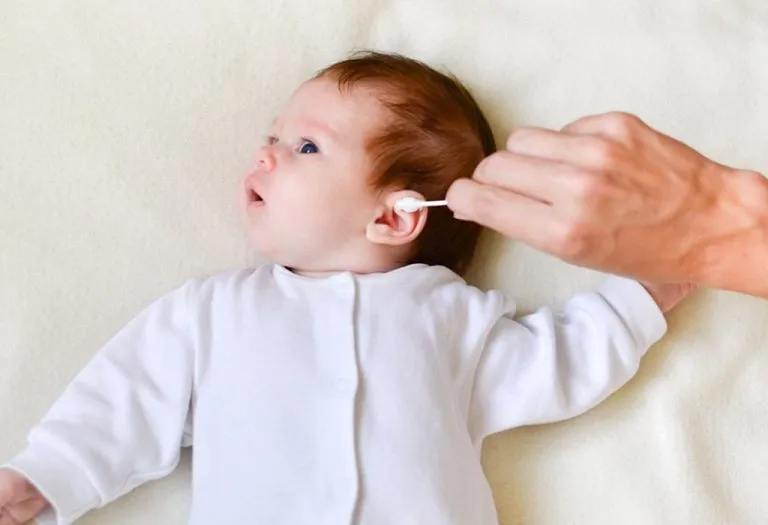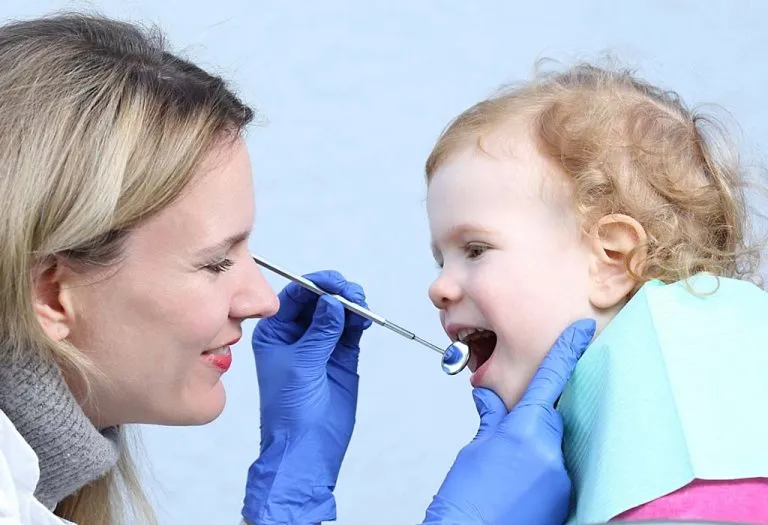Calcium Deficiency in Babies – Signs, Causes and Treatment

- Why Is Calcium Important for a Baby?
- Types of Calcium Deficiency
- Causes of Calcium Deficiency in Infants
- Baby Calcium Deficiency Symptoms
- How Is Calcium Deficiency (Hypocalcemia) Treated in Babies?
- What Can Parents Do to Treat Infant Calcium Deficiency?
- FAQs
If you aren’t breastfeeding your baby, one of the health concerns that you need to watch out for is calcium deficiency or hypocalcemia in babies. Feeding a baby isn’t complicated, but the sources of food for an infant are limited, which increases the risk of poor nutrition. Also, there are several risk factors that can lead to a calcium deficiency in your baby, ranging from genetics to medication. Fret not; it is easily reversible without any need for complex treatments. Find out what calcium deficiency is in more detail, how it can affect your baby, and what the way forward is.
Why Is Calcium Important for a Baby?
According to the American Academy of Pediatrics, calcium primarily helps in the proper growth of bones and teeth (1). As your baby will grow rapidly, calcium plays a vital role in his overall bone strength. This has long-lasting implications, as the bone mass of adults is determined by the calcium they receive from infancy to adolescence. In addition to this, calcium also helps in proper muscle function, heart function, and nerve impulse transmission.
Types of Calcium Deficiency
KidsHealth and Cleveland Clinic suggest that hypocalcemia happens when the calcium content in the blood is too low (2) (3). In babies, it is termed neonatal hypocalcemia. Neonatal hypocalcemia, according to Stanford Medicine, can occur due to different reasons at different times and is classified into two types (4):
1. Early Hypocalcemia
This happens in the initial days of birth—the first two to three days. It is curable with good nutritional support.
2. Late Hypocalcemia
This happens in the first few weeks of the baby’s birth. It is less likely to disappear soon.
Causes of Calcium Deficiency in Infants
The possible reasons for calcium deficiency in a newborn baby include (5) (6):
- Poor supply of oxygen during the delivery of the baby.
- Medication for some bacterial infections, such as Gentamicin, can affect your baby’s calcium levels.
- Poor exposure of your child to sunlight can lead to a deficiency of Vitamin D. This also reduces calcium levels in your baby, as Vitamin D helps in the proper absorption of calcium.
- Infants who are inflicted with a genetic defect called DiGeorge Syndrome suffer from poor levels of calcium in their bodies.
- Studies have shown that infants with congenital hyperthyroidism suffer from low levels of calcium in their bodies.
- Studies have shown that premature babies, especially those born before 32 weeks, are likely to develop a calcium deficiency.
- There is some speculation over the role of diabetic mothers in causing hypocalcaemia in their babies. A study shows that there may be some relations between them due to maternal hyperthyroidism.
- A diet that is rich in cow’s milk can lead to calcium deficiency. This is primarily due to two reasons. One, the infant’s body is unable to absorb the calcium in cow’s milk in the first place. Second, milk acidifies the body, and calcium is drawn from the bones to negate this acidification, leading to loss of calcium.
- Stress due to multiple illnesses during pregnancy may also cause this condition.
- Underactive or underdeveloped parathyroid gland in premature babies.
- Low magnesium in the body.
Baby Calcium Deficiency Symptoms
Observing the symptoms of calcium deficiency is difficult in infants. Hence, it is important to keep an eye out for some of the signs of calcium deficiency in babies (5) (6) (7):
- Observing a patch of sweat under the baby’s pillow and on his hair during nap time
- Erratic emotional behaviour in the form of unusual temper, restlessness, and general difficulty in controlling your baby
- Teeth formation is late and, once grown, the teeth have defects such as looseness and an uneven alignment.
- A protruding belly, which can look similar to a frog’s belly
- Dry skin and hair
- Poor level of mental concentration
- A disinterested approach to the environment around him
- Loss of appetite
- High susceptibility to diseases due to a poor immune system
- Difficulty in sleeping at night and crying more than usual as a result of night terrors.
- Suffers from seizures and convulsions due to poor oxygen supply to the brain
- Abnormal facial movements, such as twitching of the tongue and lips, fluttering of the eyes, etc.
- Poor growth and deformities in the joints
- Low blood pressure
- Tetany or spasm in the hands and feet, which look similar to a seizure. This is a dangerous symptom and if the deficiency is not addressed, it could lead to the death of the baby.
- Tingling in toes or fingers

How Is Calcium Deficiency (Hypocalcemia) Treated in Babies?
According to URMC, early hypocalcemia in babies often resolves on its own, usually with nutritional support. However, late hypocalcemia might require calcium supplements, either added to feedings or given intravenously (5). Calcium gluconate, which is easily absorbed, is commonly used for both oral and IV administration in newborns. However, the use of calcium gluconate depends on medical experts who analyse whether the medication is necessary or not.
Moreover, blood tests can assess the baby’s nutritional status, allowing adjustments to IV fluids to ensure they receive necessary nutrients like magnesium, potassium, sodium, and calcium (8).
What Can Parents Do to Treat Infant Calcium Deficiency?
Do you want to know how to improve calcium deficiency in babies at home? Even if your child has lower levels of calcium, it can be rectified by a few simple steps such as:
- Make sure they have adequate access to sunlight. Vitamin D helps in proper calcium absorption (1).
- Breastmilk is one of the best sources of calcium for babies.
- For those infants that suffer from seizures, calcium could be directly administered into the bloodstream. However, this method has one major drawback, which is that if it is injected too quickly, it can lead to heart failure.
FAQs
1. Who is at risk of hypocalcemia?
Premature babies/premies or babies who have a low birth weight are commonly at risk of hypocalcemia due to their immature parathyroid glands. Infants who experience slower growth than expected in the womb have a high chance of developing severe hypocalcemia because less calcium crosses the placenta
2. What are some calcium-rich foods I can give to my baby?
For babies under 6 months, exclusive breastfeeding will provide all the necessary nutrients to the baby. If you are not able to breastfeed, then you can provide the calcium-fortified formula to your baby after consulting your paediatrician. As they grow older, above 1, you can give them dairy products, including low-fat milk, yoghurt, cheese, flavoured milk, dark-green, leafy vegetables, tofu, fish, chickpeas, calcium-fortified cereals, and more (1).
3. What calcium-rich fruits can I give to my baby?
Fruits, generally, are not calcium-rich. However, fruit juices can be used when they are fortified with essential vitamins and minerals like calcium (9). You can provide your little one with a glass of pasteurised fortified orange juice, which has more calcium than a glass of milk. As a caution, please consult a doctor before serving juice to your baby, as it could lead to excess sugar intake.
4. Can maternal intake of calcium during pregnancy reduce the chances of calcium deficiency in babies after birth?
It is possible. Calcium supplementation during pregnancy may help prevent preterm birth, which is one of the common causes of calcium deficiency in babies (10).
While calcium deficiency should be addressed urgently, it can be corrected by the methods mentioned above. It has been observed that most newborn babies are vulnerable to low levels of calcium. However, swift action would mean that there is no permanent damage, and your baby can grow into a fine adult without any health complications.
References/Resources:
1. Calcium: The Bone Builder Kids & Teens Need; AmericanAcademy of Pediatrics; https://www.healthychildren.org/English/healthy-living/nutrition/Pages/calcium-the-bone-builder-kids-and-teens-need.aspx
2. Low Calcium in Babies (Hypocalcemia); Nemours KidsHealth; https://kidshealth.org/en/parents/hypocalcemia.html
3. Hypocalcemia; Cleveland Clinic; https://my.clevelandclinic.org/health/diseases/23143-hypocalcemia
4. Hypocalcemia in the Newborn; Stanford Medicine; https://www.stanfordchildrens.org/en/topic/default?id=hypocalcemia-in-the-newborn-90-P02376
5. Hypocalcemia in the Newborn; URMC; https://www.urmc.rochester.edu/encyclopedia/content.aspx?contenttypeid=90&contentid=p02376
6. Low calcium level – infants; MedlinePlus; https://medlineplus.gov/ency/article/007229.htm
7. Hypocalcemia in Children; Johns Hopkins Medicine; https://www.hopkinsmedicine.org/health/conditions-and-diseases/hypocalcemia-in-children
8. Hypocalcemia; Boston Children’s Hospital; https://www.childrenshospital.org/conditions/hypocalcemia
9. 22 Calcium-Rich Foods; Cleveland Clinic; https://health.clevelandclinic.org/calcium-rich-foods
10. Hofmeyr. G. J, Lawrie. T. A, et al.; Calcium supplementation during pregnancy for preventing hypertensive disorders and related problems; Cochrane Database Syst Rev.; PubMed Central; https://www.ncbi.nlm.nih.gov/pmc/articles/PMC6517256/; October 2018
Also Read:
Anaemia in Babies
Iodine Requirement in Infants
Iron Rich Foods for Babies and Toddlers
Why Vitamin K is Important for Newborn Babies?
Was This Article Helpful?
Parenting is a huge responsibility, for you as a caregiver, but also for us as a parenting content platform. We understand that and take our responsibility of creating credible content seriously. FirstCry Parenting articles are written and published only after extensive research using factually sound references to deliver quality content that is accurate, validated by experts, and completely reliable. To understand how we go about creating content that is credible, read our editorial policy here.

























.svg)


















